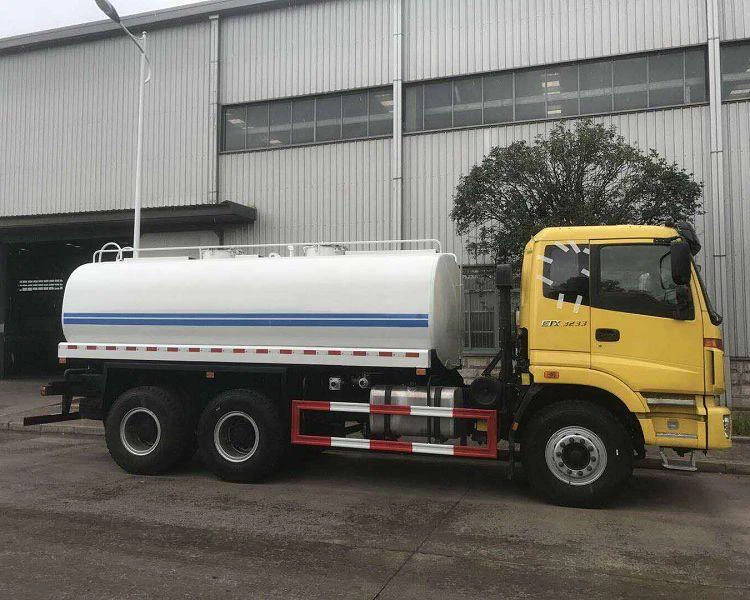Everything You Need to Know About Large Garbage Trucks

In our ever-evolving world, effective waste management has become more crucial than ever. Large garbage trucks play a vital role in maintaining cleanliness and hygiene in our communities. This article dives deep into the world of large garbage trucks, exploring their types, benefits, operational mechanisms, and much more.
Understanding Large Garbage Trucks
Large garbage trucks are specially designed vehicles used for collecting and transporting waste from residential, commercial, and industrial areas. Their durability, size, and operational features distinguish them from smaller trucks.
The Importance of Large Garbage Trucks in Waste Management
Large garbage trucks are essential for waste management systems. They help minimize environmental pollution by ensuring waste is collected and disposed of efficiently. These trucks can handle large volumes of waste, making them indispensable in urban environments.
Types of Large Garbage Trucks
There are several types of large garbage trucks, each designed for specific waste collection needs. Here are some common types:

- Front-loading trucks: Equipped with a hydraulic lifting system, these trucks lift bins from the front to collect waste.
- Rear-loading trucks: These trucks have a large compartment at the back where waste is manually loaded.
- Semi-automatic trucks: A mix between manual and automated systems, these trucks can operate with less manual effort compared to rear-loaders.
- Roll-off trucks: Designed for industrial waste, these trucks haul large containers that can be dropped off or picked up as needed.
Components of a Large Garbage Truck
Understanding the components of a large garbage truck helps appreciate the technology behind their operation.
Chassis
The chassis is the truck’s frame and supports all the components. It’s built to withstand heavy loads and harsh operating conditions.
Compaction System
Most large garbage trucks have a compaction system that compresses waste to maximize space in the truck’s body. This system reduces the number of trips needed for waste collection.
Lifting Mechanism
The lifting mechanism is essential for automated or semi-automated trucks. It enables the truck to pick up waste bins with ease, improving efficiency and safety during collection.
Body
The body of the truck is where the collected waste is stored. It’s typically made from high-strength steel to resist corrosion and wear.
How Large Garbage Trucks Operate
The operation of large garbage trucks involves a systematic process that ensures efficient waste collection.
Route Planning
Before the trucks hit the streets, route planning is essential to optimize efficiency. Companies use software to determine the best routes based on traffic patterns and waste generation data.

Collection Process
The collection process typically follows these steps:
- Arriving at the Location: The driver parks the truck near the waste bins.
- Lifting the Bin: For front-loaders, the truck’s hydraulic system lifts the bin and empties it into the truck.
- Compacting Waste: Once the bin is emptied, the truck compacts the waste to maximize space.
- Repeating the Process: The truck moves to the next collection point and repeats the process.
Emptying the Truck
Once the truck is full, it drives to a landfill or a waste processing facility to empty its contents, ensuring proper disposal and waste management.
Benefits of Using Large Garbage Trucks
Large garbage trucks offer numerous advantages that benefit both waste management companies and the environment.
Efficiency and Time-Saving
These trucks are designed to handle large volumes of waste in a single trip, minimizing the number of trips necessary and saving time.
Safety
Automated systems reduce the need for manual handling of waste, decreasing the risk of injury for workers.
Environmental Impact
By efficiently collecting and disposing of waste, large garbage trucks play a crucial role in reducing environmental pollution and promoting sustainability.
Cost Considerations for Large Garbage Trucks
Investing in large garbage trucks requires careful financial planning. Here are some considerations:
Initial Purchase Cost
The initial purchase cost of a large garbage truck can range from $100,000 to $500,000, depending on the model and features. Companies must budget accordingly.
Maintenance Costs
| Maintenance Type | Estimated Annual Cost |
|---|---|
| Regular Servicing | $5,000 – $10,000 |
| Repairs | $1,000 – $5,000 |
| Fuel Consumption | $10,000 – $30,000 |
Operational Costs
In addition to maintenance, companies must consider operational costs like fuel, insurance, and driver salaries, which can significantly impact the overall budget.
Regulations and Compliance for Large Garbage Trucks
Operating large garbage trucks also comes with regulatory requirements that vary by region.
Weight Limits
Many jurisdictions impose weight limits on trucks to protect public roads and ensure safety. Operators must adhere to these limits during collection and transportation.
Environmental Regulations
Environmental regulations often dictate the type of emissions allowed from heavy trucks, compelling companies to invest in cleaner technologies.
Licensing and Certification
Drivers must possess specific licenses and certifications to operate large garbage trucks, ensuring safety and compliance with local laws.
Future Trends in Large Garbage Trucks
As technology evolves, large garbage trucks are also experiencing significant changes.
Electric and Hybrid Models
With a growing focus on sustainability, electric and hybrid large garbage trucks are becoming more popular. These models reduce emissions and fuel costs, contributing to greener waste management practices.
Smart Technology Integration
Smart technology, including GPS and real-time tracking, is increasingly being integrated into garbage trucks to improve efficiency and route management.
Automation
Automation is reshaping the waste collection industry. Fully autonomous garbage trucks are on the horizon, promising even greater efficiency and safety.
Case Studies: Successful Large Garbage Truck Implementations
Several cities and companies have successfully implemented large garbage trucks to enhance their waste management practices.
Case Study 1: New York City
New York City operates a fleet of over 250 large garbage trucks. By employing route optimization software, the city has reduced fuel consumption by 15% and improved collection efficiency.
Case Study 2: San Francisco
San Francisco’s waste management program incorporates electric garbage trucks. This initiative has helped the city reduce greenhouse gas emissions significantly while handling its ambitious waste recycling goals.
Maintenance Tips for Large Garbage Trucks
Proper maintenance is crucial for the longevity and efficiency of large garbage trucks. Here are some practical tips:
Regular Inspections
Schedule routine inspections every few months to check vital components like brakes, tires, and fluid levels.
Cleaning
Regularly clean the truck to prevent build-up of waste that can lead to corrosion and operational issues.
Effective Lubrication
Ensure all moving parts are appropriately lubricated to reduce wear and tear and enhance performance.
FAQs about Large Garbage Trucks
1. What is the average lifespan of a large garbage truck?
The average lifespan of a large garbage truck is typically between 10 to 15 years, depending on maintenance and usage.
2. How much can a large garbage truck carry?
A large garbage truck can carry anywhere from 20,000 to 30,000 pounds of waste, depending on its design and capacity.
3. Are large garbage trucks environmentally friendly?
Many large garbage trucks are adopting cleaner technologies, such as electric or hybrid systems, to minimize their environmental impact.
4. How do large garbage trucks manage hazardous waste?
Specialized large garbage trucks are designed for hazardous waste collection, adhering to strict regulations for safety and disposal.
5. What should I do if my garbage isn’t collected?

Contact your local waste management service to report the issue. They might reschedule collection or address any problems.
6. How often do large garbage trucks come to my neighborhood?
Typically, large garbage trucks visit residential areas weekly, but schedules may vary based on local regulations and service agreements.
